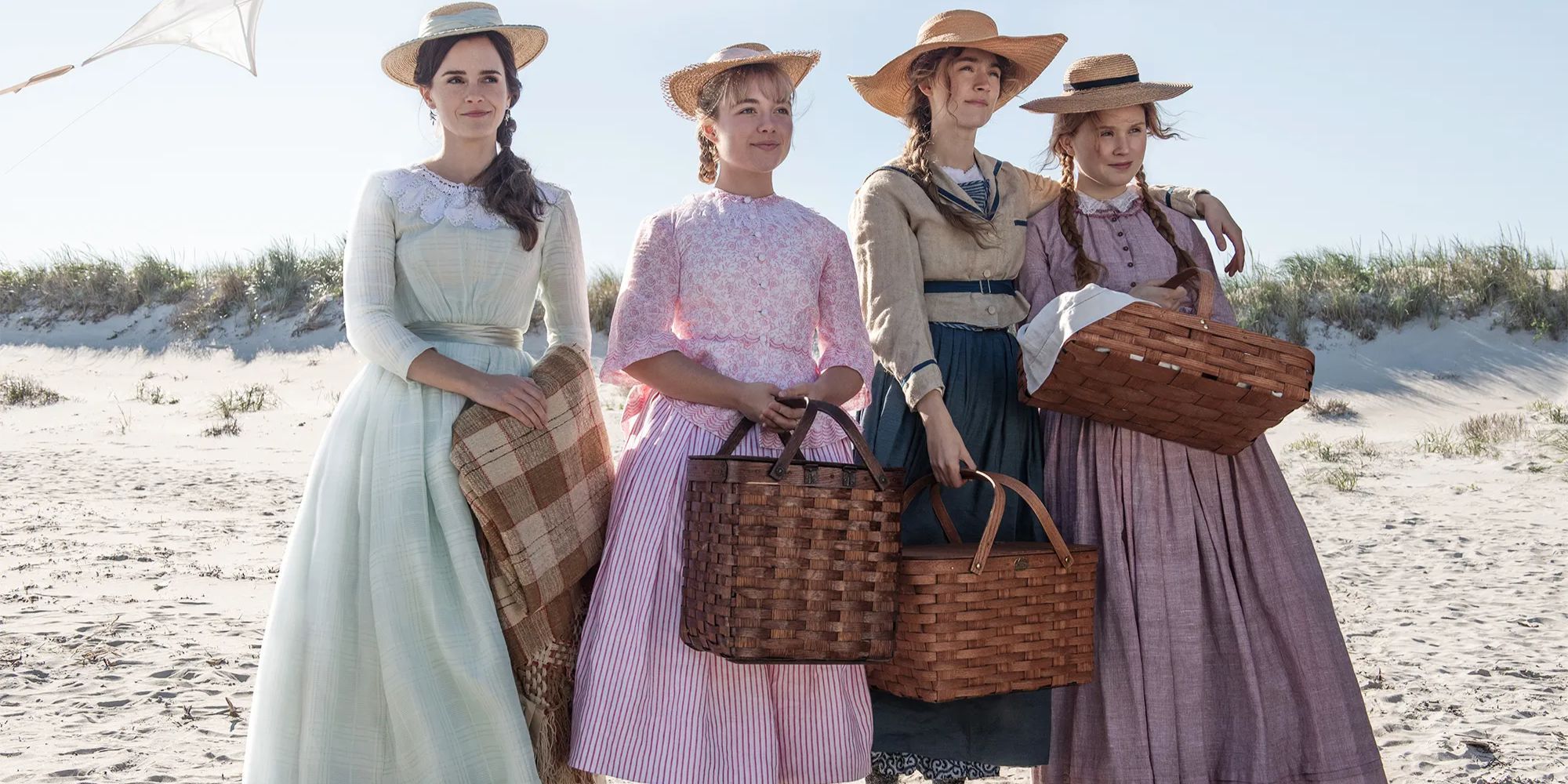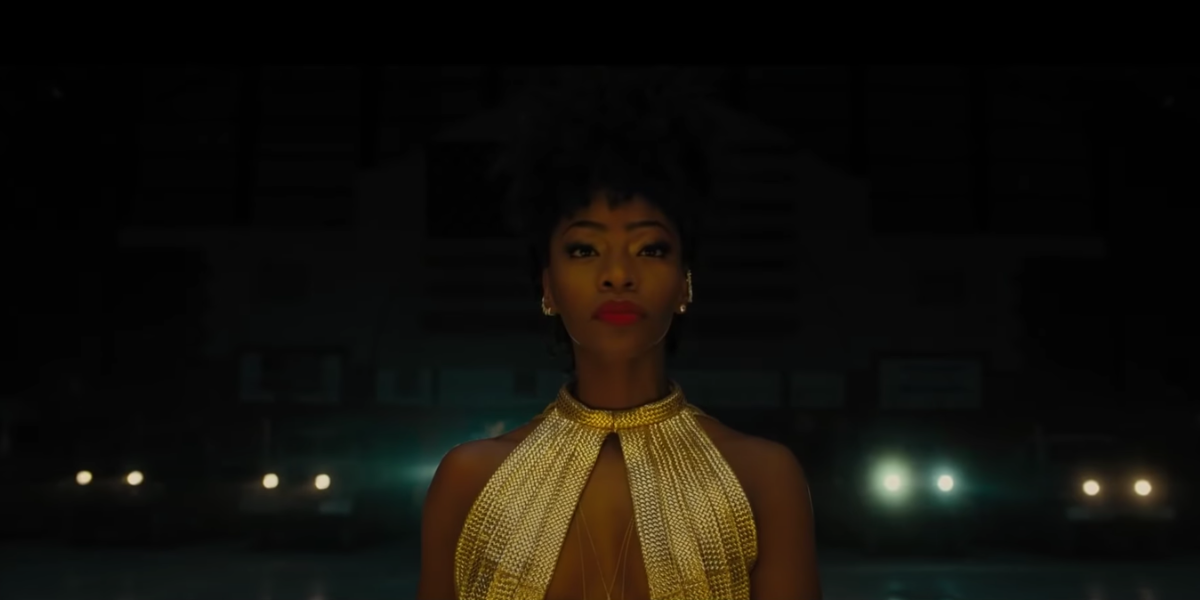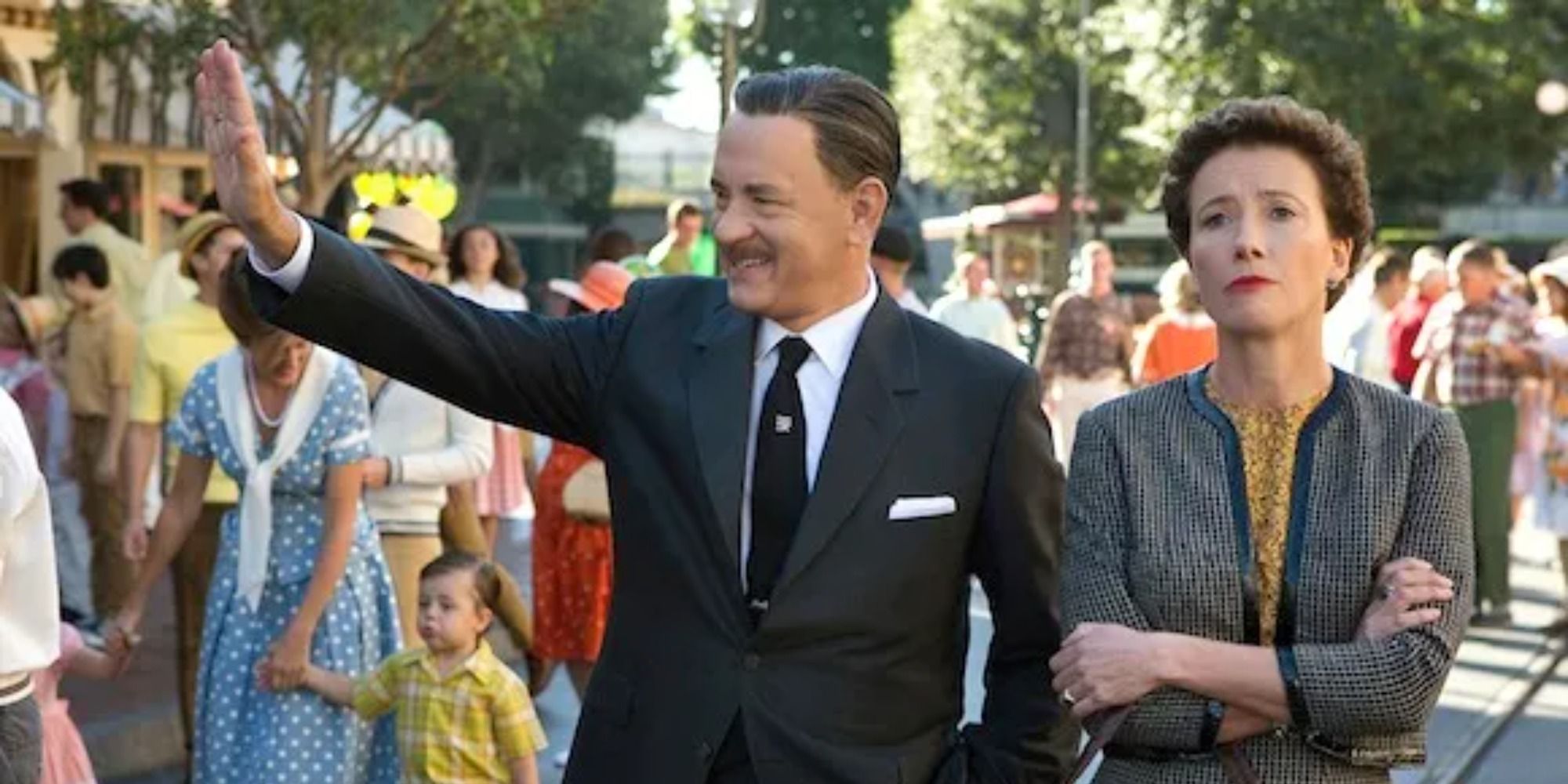The recent Hulu movie, Rosaline created a modern dialogue and attitude to the story of Romeo and Juliet, as it took the perspective of the minor character who was once Romeo's love interest. The modern elements not only pertain to the humor but add a layer of Rosaline's autonomy and desires beyond marriage.
Novel elements to classics aren't a new thing, but the ones that stick out don't just redo or take a different character. These unique titles often help re-frame certain characters as heroes rather than villains like Maleficent or redo the themes of a story in a modern setting, showing the long-lasting patterns that repeat themselves throughout history and storytelling.
'Maleficent' (2014) – Sleeping Beauty
One of the first live-action "remakes" of their fairytale adaptations, Maleficent is centered on the villain of Sleeping Beauty. Known as an evil fairy who curses Aurora to fall asleep, Maleficent re-imagines her as a woman whose fairy wings were stolen as a girl, by none other than the king, Aurora's father. Her curse on Aurora (Elle Fanning) is revenge on the king and, ultimately, Maleficent (Angelina Jolie) comes to care for the princess.
It's not just the endearing ending that changes the themes, but the way the movie broaches sensitive subjects in a thoughtful way. Maleficent is shown as someone who realizes how she let her trauma hurt an innocent girl rather than the man who hurt her. To create a narrative where evils are reliant on the patriarchy leaves behind the initial witch tropes of fairy tales to instead show women as far more multifaceted.
'Rosaline' (2022) – Romeo and Juliet
In the original tale of Romeo and Juliet, Rosaline rejects Romeo's advances. But this adaptation tells the story of a Rosaline (Kaitlyn Dever) who's very in love with Romeo (Kyle Allen), only to be ditched for her younger cousin, Juliet (Isabel Merced). The comedic take on the perspective of Rosaline in the story may not be all that accurate, but it is a funny look at a jealous girl who's so focused on a guy who doesn't care.
Throughout the story, Rosaline seems more interested in separating Romeo and Juliet than actually getting back with Romeo, as she realizes he tells the same story to every girl. The story laughs at the idea that men who are poets are romantics and is a narrative far more relatable today.
'Freeway' (1996) – Red Riding Hood
The 90s movie Freeway took Red Riding Hood to a new level by turning the story into a young girl on the run after her mother gets arrested again. As Vanessa (Reese Witherspoon) attempts to get to her grandmother's home, her car breaks down. She's found by Mr. Wolverton (Kiefer Sutherland), a child therapist who seems kind and caring, but is actually a local serial killer.
The film takes the classic tale and uses it as a commentary on gender, race, and class, as Vanessa is vilified by the media due to her arrests made while trying to survive poverty. She's pitted against a wealthy man who's shown as a victim and her story is used to champion "Victim's Rights," which speaks to how the movement heavily worked against working-class people. Red Riding Hood is turned from the perfect victim to the wrongfully convicted girl pitted against a wealthy man.
'Clueless' (1995) – Emma
The wealthy English society gets reimagined as the exorbitantly rich and materialistic Los Angeles, with Cher Horowitz front and center. The 90s classic, Clueless, puts Jane Austen's Emma into a new age, as she challenges the immaturity of modern men, and pushes against the world that looks down on her.
The movie has many great layers, from high school extras with nose job bandages in the background and casual mentions of drastic cosmetic procedures. Clueless points out how materialism and romantic relationships are still held as markers of femininity while showing characters who learn to understand that they're not defined by that.
'The Half of It' (2020) – Cyrano de Bergerac
The original story and adaptations of Cyrano de Bergerac always had an air of insult when portraying the titular character as ugly, typically by making his nose bigger. The Half of It takes a better approach, by making it a girl dealing with her feelings for another girl. In the film, Ellie (Leah Lewis) is approached by a football player, Paul (Daniel Diemer), who asks for her help in writing letters to their classmate, Aster (Alexxis Lemire).
Through this Ellie falls for Aster but instead of wondering if Aster will like how she looks, it is a question of Aster's sexuality. This take on the classic shows a girl attempting to understand her feelings, social hierarchies in high school, and sexuality through love letters.
'Get Out' (2017) – The Stepford Wives
The Stepford Wives is a story that initially talks about gender as a woman moves into a community with her husband and slowly realizes that the women seem robotic and that the women she befriends will seem suddenly replaced. Get Out similarly follows those lines but with Chris (Daniel Kaluuya), a Black man, who goes with his white girlfriend, Rose (Allison Williams) to meet her family and becomes aware of how the Black people there act bizarrely.
The two stories approach different subjects but capture how power structures not only work within society, but within personal relationships. The nature of both films comments on how people in the power structure are turned into servants to that system if they question or push against it.
'Fire Island' (2022) – Pride and Prejudice
The humorous tale that follows the Bennett sisters attempting to find love as a method of securing wealth and security gets re-imagined as five gay men who trek out to Fire Island every year to stay with their mother figure and have fun on the island. The thing is, similar to the Bennett sisters, the men stick out as less wealthy and struggle to fit in with the wealthy gay men of the island who look down on them.
The dynamic between Noah (Joel Kim Booster) and Will (Conrad Ricamora) perfectly matches the stubborn dynamic between Lizzie and Mr. Darcy, as they're all too stubborn to step down and admit feelings. Noah's tight friendship with Howie (Bowen Yang) makes him all the more determined to humble the wealthy men of Fire Island.
'Ex Machina' (2014) – Pygmalion
There's an argument for Ex Machina being a version of Frankenstein, but the general idea that the creation of a woman is in part for sexual appeal mirrors the story of Pygmalion much more. Pygmalion is the name of a sculptor who swears off sex after witnessing women engaging in sex work, instead creating a statue that he falls in love with.
The robots that Nathan (Oscar Isaac) creates in large part exist for his own desire and as they develop autonomy, he prepares to remove that from them. While Pygmalion eventually marries his creation, Nathan's robots manage to push against him. The development in this story pushes against the creation of women's existence to be for men.
'Little Women' (2019)
While quite loyal to the source material, Greta Gerwig's adaptation of Little Women blurs the lines between the character of Jo (Saorise Ronan) and the author of the novel, Louisa May Alcott, who based the story on her and her sisters. Through smaller moments, she adds more progressive story pieces adding mentions of Meg's (Emma Watson) financial struggles and life beyond her sisters, Amy (Florence Pugh) acknowledging that marriage is an "economic proposition" for women, and challenging Jo's romantic life.
The added characterizations of the girls help to create a perspective on women in that era with a fresh view, admitting head-on that for women, marriage was a financial issue.
'Chi-Raq' (2015) – Lysistrata
The classic Greek story of Lysistrata follows a woman who withholds sex and encourages other women to do the same to help end the Peloponnesian war. Chi-Raq takes this story to Chicago, where gang violence and police brutality resulted in the deaths of many children in the area. Lysistrata (Teyonah Parris) encourages women to start withholding sex to stop the violence,
The classic story is well highlighted throughout Chi-Raq, as while women can enlist, they're still less likely to join institutions like the military or be directly involved in violent groups. The movie demonstrates women who withhold sex, not just to make partners feel frustrated, but to make a point about their own humanity in a violent society.
'Saving Mr. Banks' (2013) – Mary Poppins
While not necessarily a retelling, Saving Mr. Banks re-examines the beloved movie Mary Poppins and the origin story behind both the making of the film and the life of the author, PL Travers (played by Emma Thompson). Travers has a strong aversion to the production spin that Walt Disney (Tom Hanks) wants to put on it, and her story slowly unravels to show how important Mary Poppins is to her life.
The glimpse into Travers' life adds an interesting nuance, as she loves her own father so strongly but writes a man who's quite estranged from the family, and Mary Poppins as more stern. These origins flesh out a woman who used her imagination to fill in the cracks of a flawed family and develop a story of someone who has a difficult time letting go of the fiction she once created.

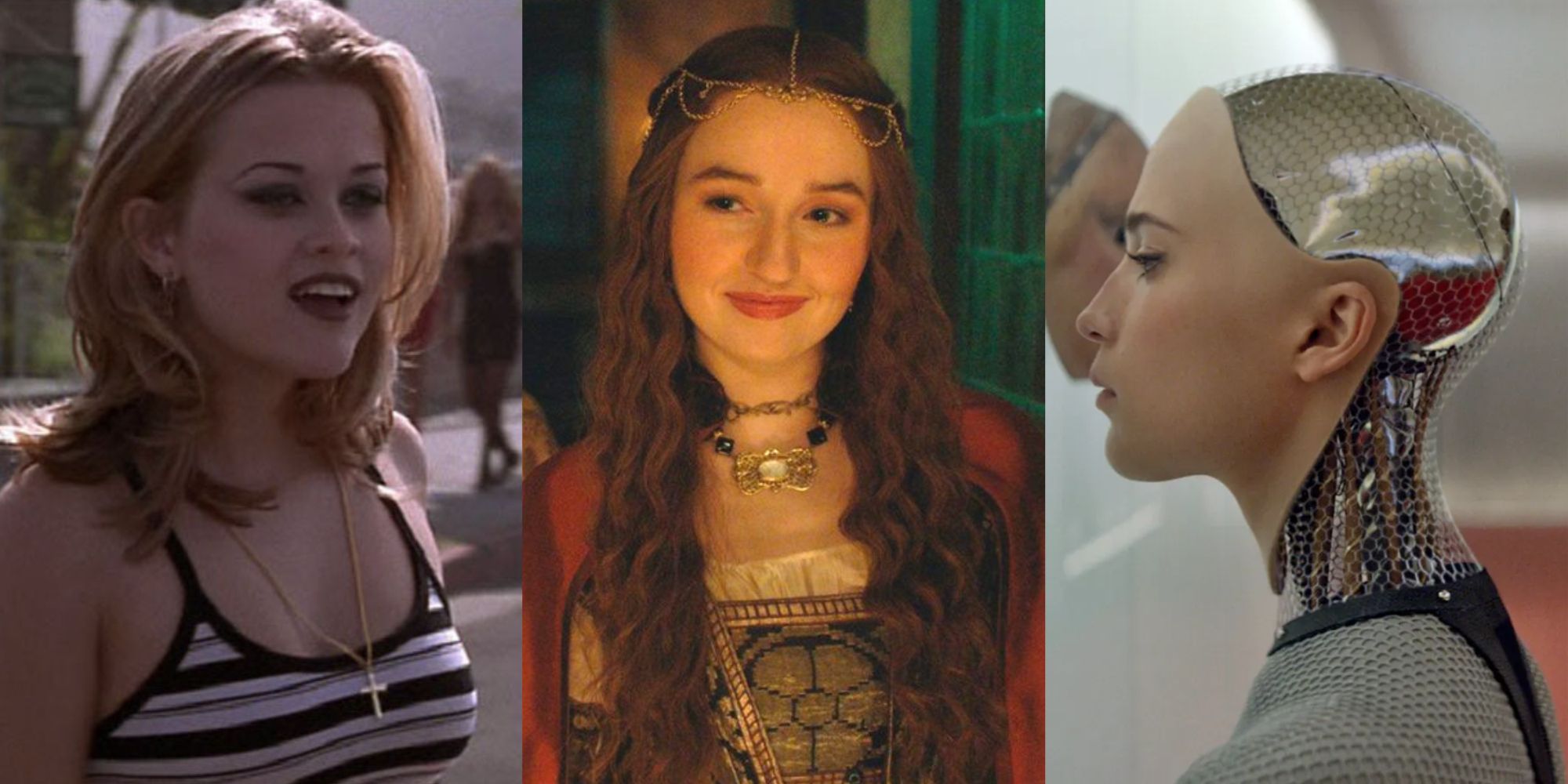
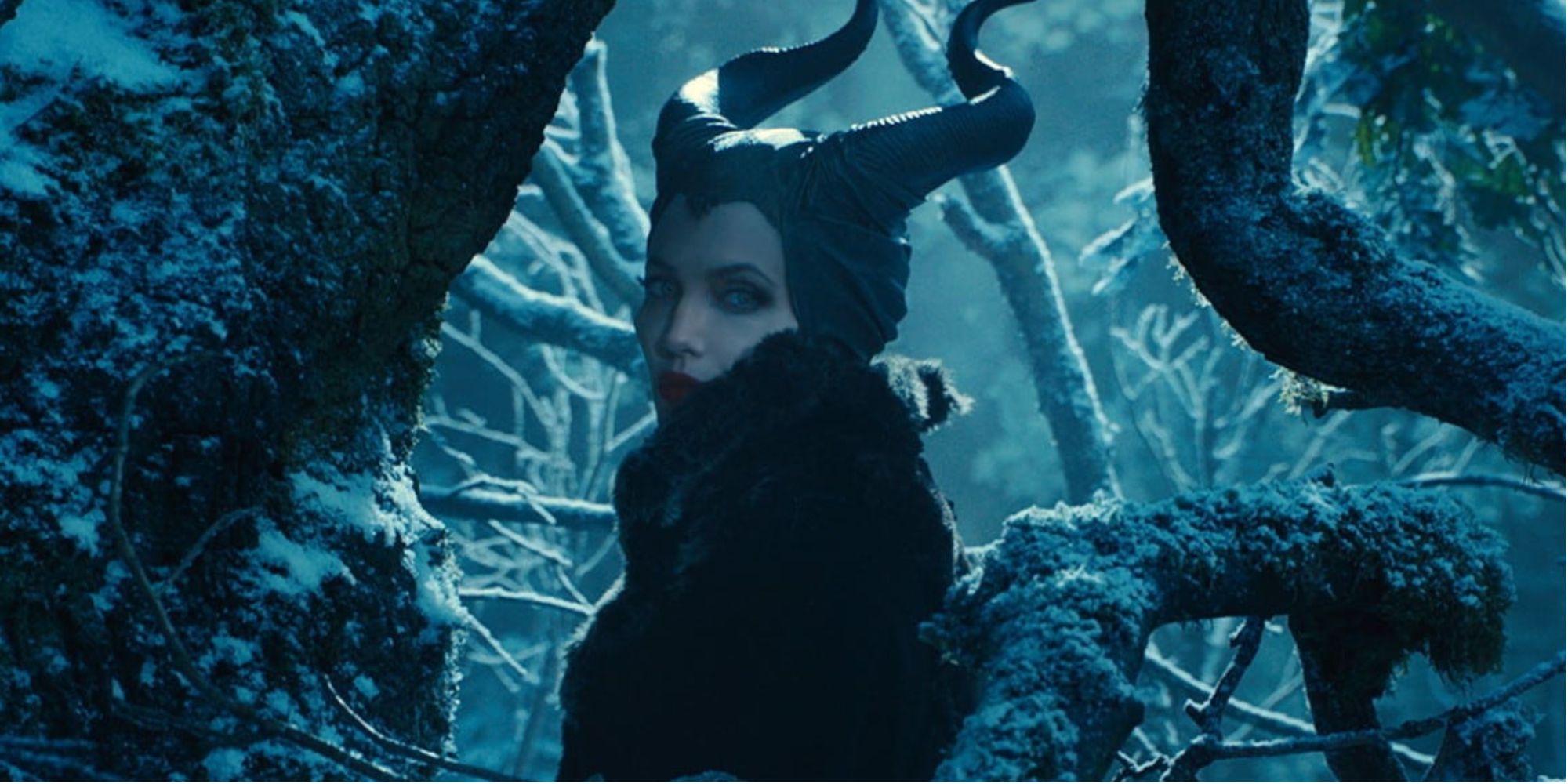
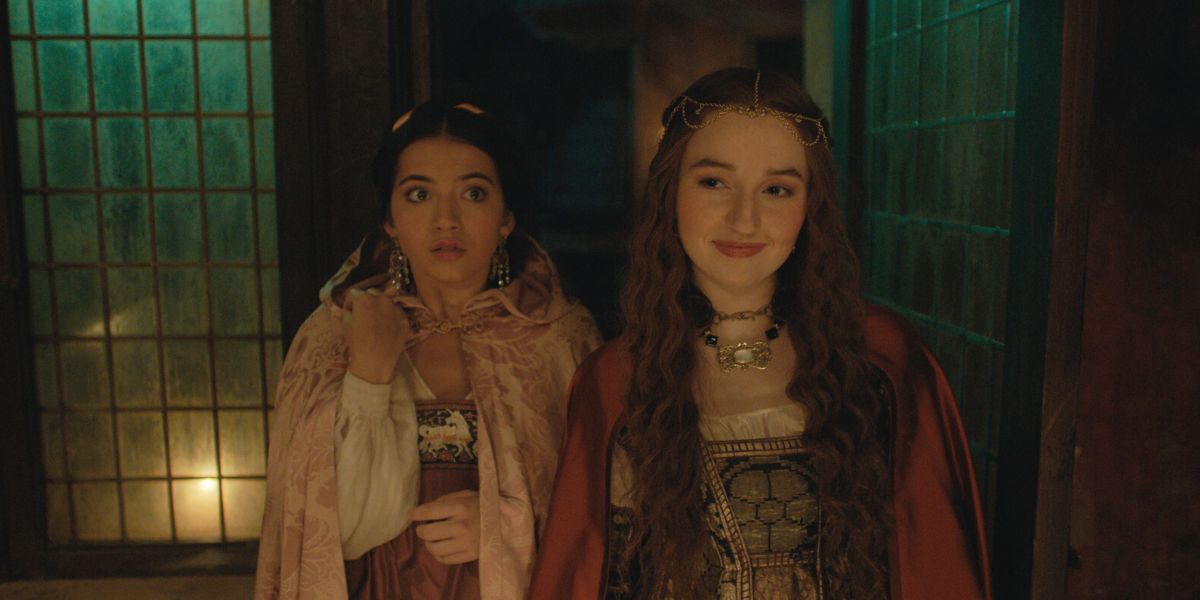
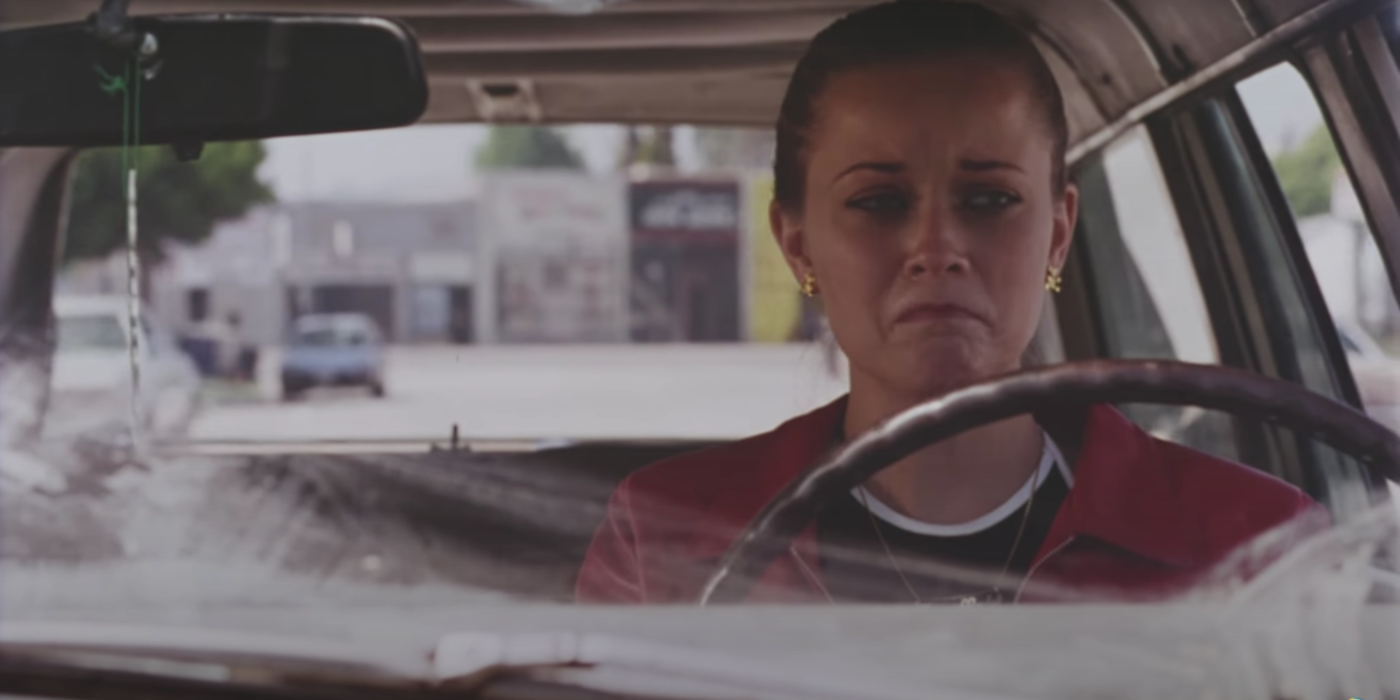
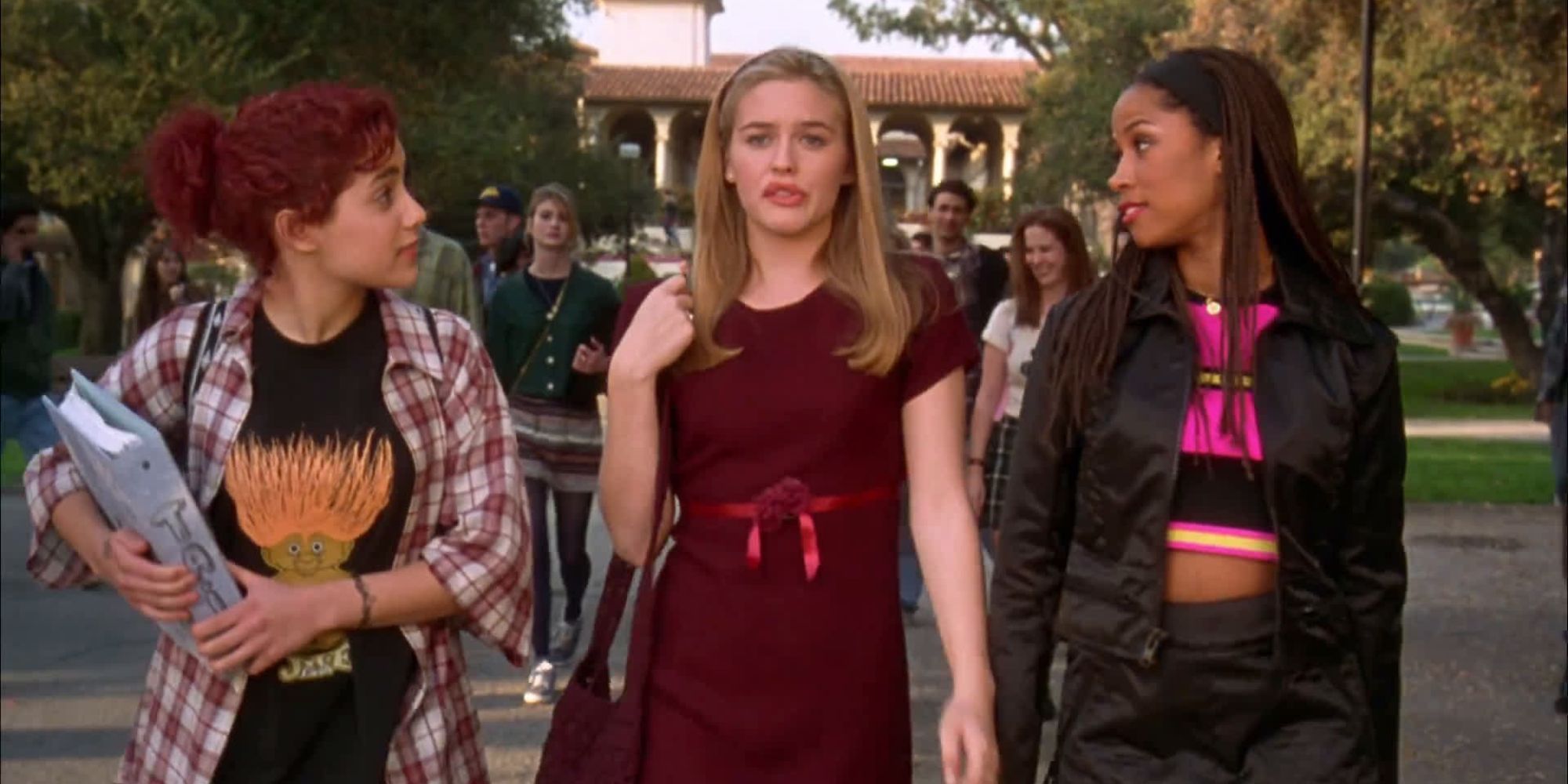
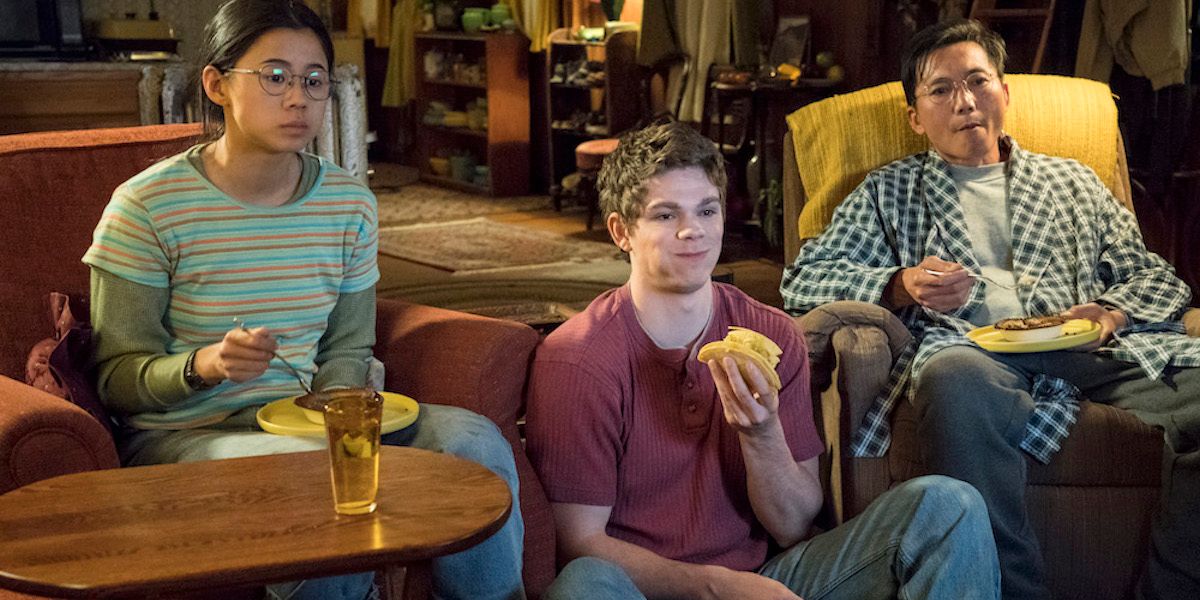
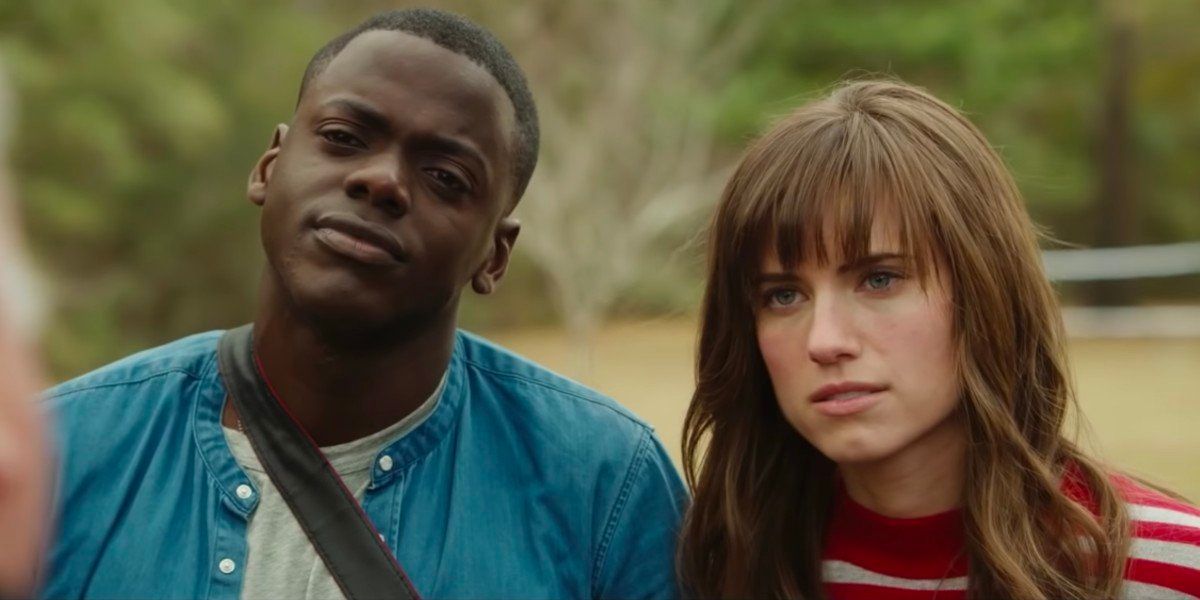
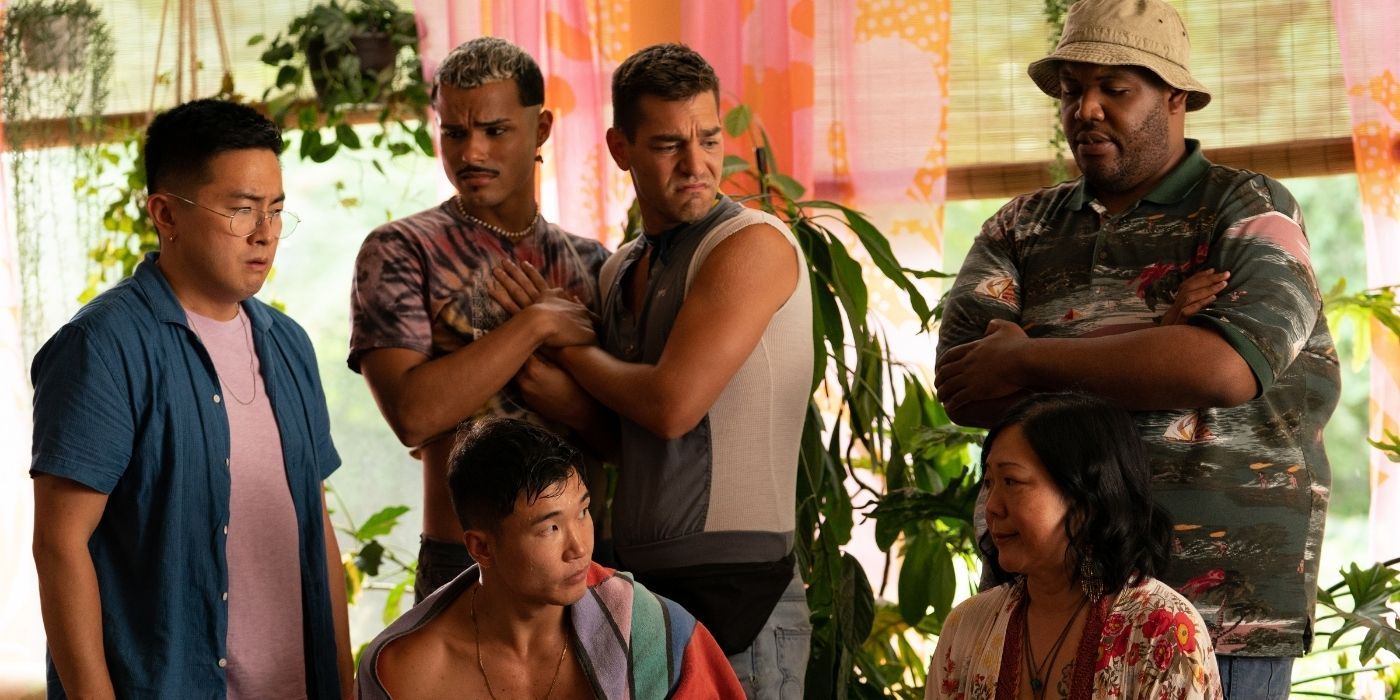
-(1).jpg)
